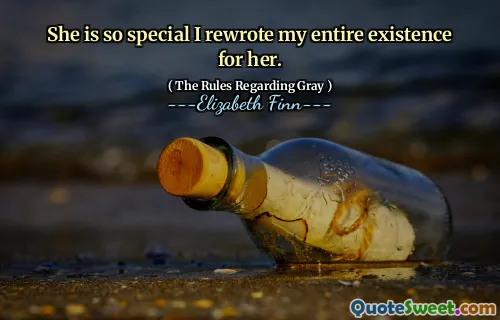You know, I always knew I was a piece of shit -- a real fucking asshole. But you know what else? You were always there to convince me I was right.
The quote reflects a deep self-awareness in the speaker, who acknowledges their own negative traits and recognizes their problematic behavior. This admission carries a tone of honesty and an underlying sense of guilt about their actions, suggesting a struggle with self-identity and behavior patterns. It reveals a complex relationship between the speaker and the person they address, as the latter seems to have played a role in enabling or validating the speaker's flawed conduct.
The mention of being convinced that their behavior was acceptable indicates a troubling dynamic, where the speaker feels supported in their wrongdoings. This can highlight themes of codependency or unhealthy relationships, demonstrating how individual accountability can become blurred. The author's exploration of these themes in "The Rules Regarding Gray" invites readers to reflect on their own relationships and the impact of enabling behaviors on personal growth.






